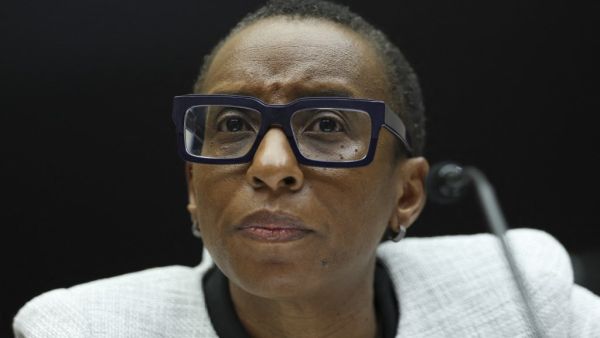ALBAWABA - Claudine Gay, the president of Harvard University, announced her resignation on Tuesday, following months of controversy over allegations of plagiarism and her handling of anti-Semitism on campus.
Gay, who was the first Black person to lead the prestigious institution, faced intense criticism from lawmakers, alumni, donors, and faculty members, as well as personal threats and racist attacks.
Gay's troubles began in October, when an anonymous article in a conservative website accused her of failing to properly cite sources in several of her academic publications. The article claimed that Gay had copied or paraphrased passages from other scholars without giving credit, and that some of her citations were inaccurate or misleading. Gay denied the allegations and said that she had followed the standards of academic integrity in her field.
However, the plagiarism accusations resurfaced in December, when another conservative blogger posted sections of her doctoral dissertation that contained almost the exact phrases of academics she had cited in her work, in an apparent breach of Harvard's anti-plagiarism policy. Gay admitted that she had made some errors in her citation practices and said that she would submit edits to her dissertation, which she defended in 1997.
Gay was also engulfed by scandal over her congressional testimony in December, where she declined to say unequivocally whether calling for the genocide of Jews would violate Harvard's code of conduct, during a hearing on anti-Semitism on college campuses amid the Israel-Hamas conflict. "It depends on the context," she told lawmakers in one tense exchange.
Gay's response sparked outrage from Jewish groups, pro-Israel advocates, and politicians from both parties, who accused her of condoning anti-Semitism and failing to protect Jewish students. Gay later apologized for her testimony and said that she condemned calls for genocide as "despicable and contrary to fundamental human values."
Gay, 53, was born in New York to Haitian immigrants and is a professor of political science who in July became the first Black president of 368-year-old Harvard University, in Cambridge, Massachusetts. She made history as the first woman and the first person of color to hold the position.
In her resignation letter, Gay said that she had faced threats to her safety and "racial animus" in the wake of the furore over her handling of the plagiarism and anti-Semitism issues. She said that she loved Harvard and that it was "with a heavy heart" that she decided to step down.
"It has become clear that it is in the best interests of Harvard for me to resign," she wrote. "I hope that my departure will allow the university to heal and move forward."
The Harvard Corporation, the university's governing body, said that it accepted Gay's resignation with "deep regret" and that it appreciated her "remarkable resilience in the face of deeply personal and sustained attacks." It also reaffirmed its commitment to combat anti-Semitism and promote academic integrity on campus.
The corporation said that it would appoint an interim president and launch a search for a permanent successor. It also thanked Gay for her service and wished her well in her future endeavors.








